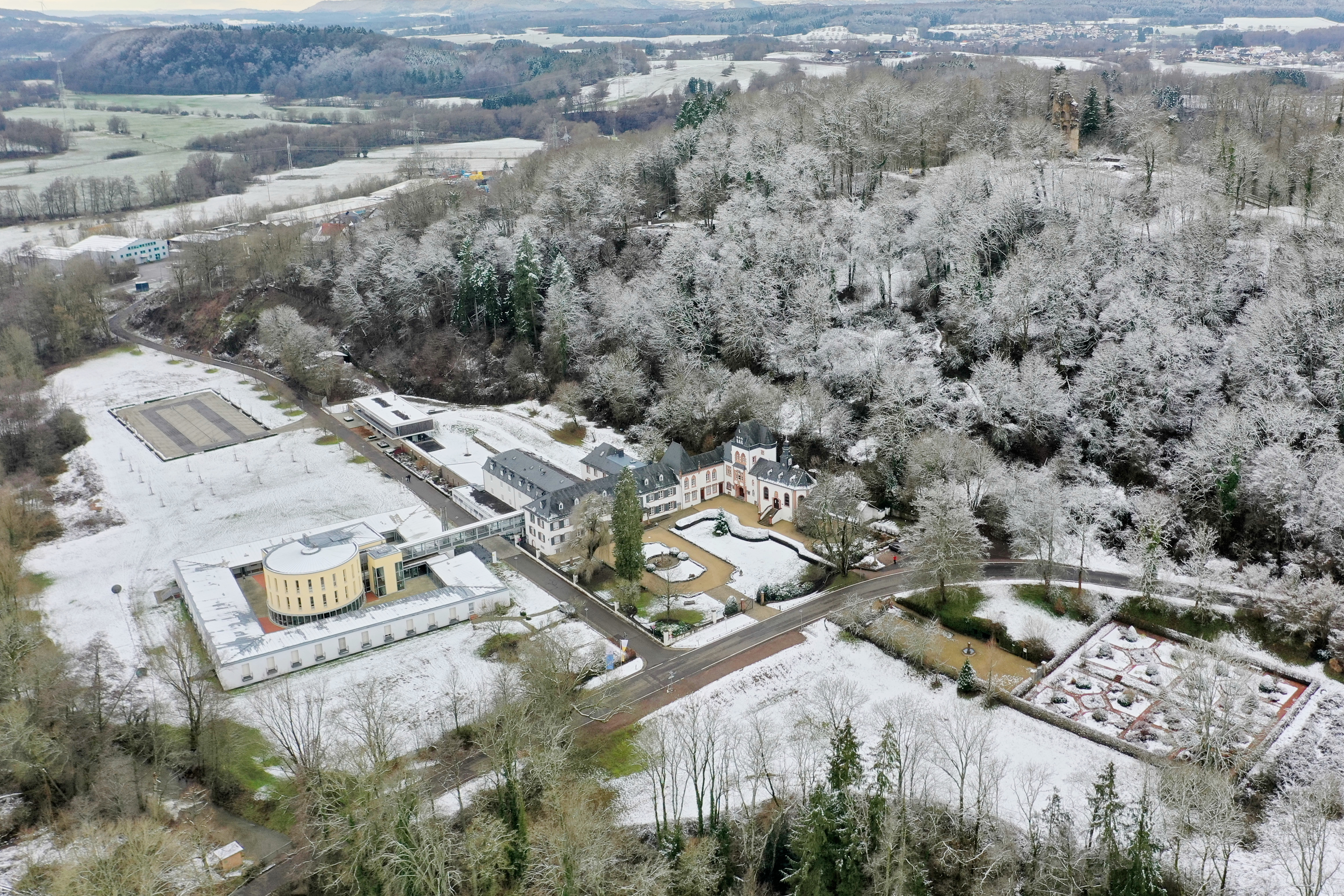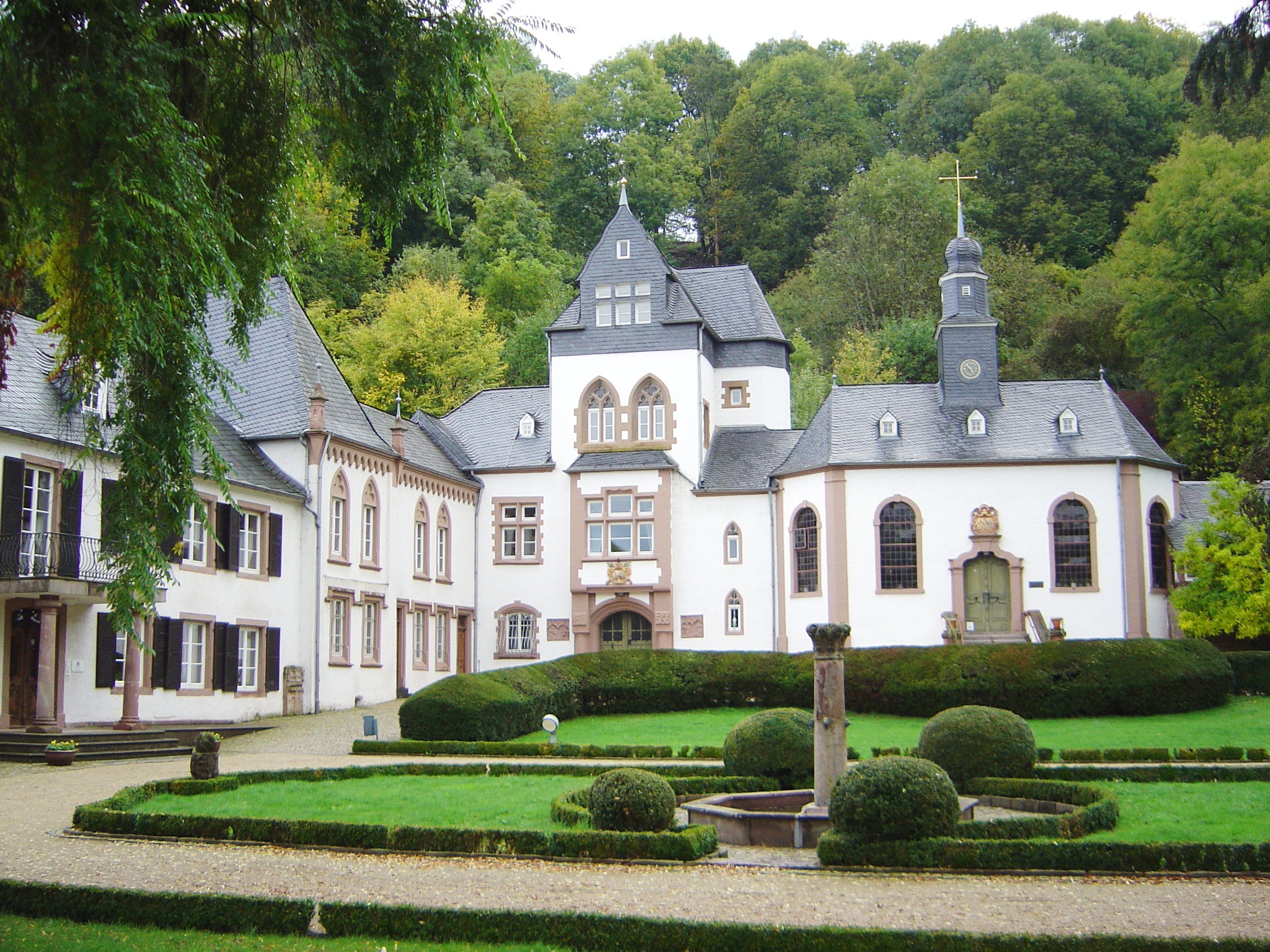Dagstuhl Seminar on:
[Wikipedia]
[Google]
[Amazon]



 Dagstuhl is a computer science research center in Germany, located in and named after a district of the town of Wadern,
Dagstuhl is a computer science research center in Germany, located in and named after a district of the town of Wadern,
Official website
Schloss Dagstuhl
on LinkedIn
Schloss Dagstuhl
on Twitter {{Authority control Non-profit_organisations_based_in_Germany 1990 establishments in Germany Leibniz Association Computer science institutes in Germany International research institutes Castles in Saarland Buildings and structures in Merzig-Wadern



 Dagstuhl is a computer science research center in Germany, located in and named after a district of the town of Wadern,
Dagstuhl is a computer science research center in Germany, located in and named after a district of the town of Wadern, Merzig-Wadern
Merzig-Wadern is a ''Kreis'' (district) in the northwest of the Saarland, Germany. Neighboring districts are Trier-Saarburg, Sankt Wendel, Saarlouis, the French ''département'' Moselle, and Luxembourg.
History
The district was created in 1816 wh ...
, Saarland.
Location
Following the model of the mathematical center at Oberwolfach, the center is installed in a very remote and relaxed location in the countryside. The Leibniz Center is located in a historiccountry house
An English country house is a large house or mansion in the English countryside. Such houses were often owned by individuals who also owned a town house. This allowed them to spend time in the country and in the city—hence, for these peopl ...
, Schloss Dagstuhl (Dagstuhl Castle), together with modern purpose-built buildings connected by an enclosed footbridge.
The ruins of the 13th-century Dagstuhl Castle
Dagstuhl Castle (in German: Burgruine Dagstuhl or Burg Dagstuhl) is a ruined castle on the top of a hill near the town of Wadern, ''kreis'' Merzig-Wadern, in Saarland, Germany. It overlooks the newer Schloss Dagstuhl in the valley below, which i ...
are nearby, a short walk up a hill from the Schloss.
History
The Leibniz-Zentrum für Informatik (LZI, ''Leibniz Center for Informatics'') was established at Dagstuhl in 1990. In 1993, the over 200-year-old building received a modern extension with other guest rooms, conference rooms and a library. The center is managed as a non-profit organization, and financed by national funds. It receives scientific support by a variety of German and foreign research institutions. Until April 2008 the name of the center was: International Conference and Research Center for Computer Science (German
German(s) may refer to:
* Germany (of or related to)
**Germania (historical use)
* Germans, citizens of Germany, people of German ancestry, or native speakers of the German language
** For citizens of Germany, see also German nationality law
**Ger ...
: ''Internationales Begegnungs- und Forschungszentrum für Informatik (IBFI)''). The center was founded by Reinhard Wilhelm
Reinhard Wilhelm (born June 5, 1946) is a German computer scientist.
Life and work
Wilhelm was born in , today part of the municipality of Finnentrop, Westphalia. He studied math, physics and mathematical logic at University of Münster and co ...
, who continued as its director until May 2014, when Raimund Seidel Raimund G. Seidel is a German and Austrian theoretical computer scientist and an expert in computational geometry.
Seidel was born in Graz, Austria, and studied with Hermann Maurer at the Graz University of Technology. He received his M. Sc. in 19 ...
became the director. The list of shareholders includes:
* German Informatics Society
The German Informatics Society (GI) (german: Gesellschaft für Informatik) is a German professional society for computer science, with around 20,000 personal and 250 corporate members. It is the biggest organized representation of its kind in the ...
* Saarland University
* Technical University of Kaiserslautern
Technical University of Kaiserslautern (German: ''Technische Universität Kaiserslautern'', also known as TU Kaiserslautern or TUK) is a public research university in Kaiserslautern, Germany.
There are numerous institutes around the university, ...
* Karlsruhe Institute of Technology
The Karlsruhe Institute of Technology (KIT; german: Karlsruher Institut für Technologie) is a public research university in Karlsruhe, Germany. The institute is a national research center of the Helmholtz Association.
KIT was created in 2009 w ...
* Technische Universität Darmstadt
* University of Stuttgart
The University of Stuttgart (german: Universität Stuttgart) is a leading research university located in Stuttgart, Germany. It was founded in 1829 and is organized into 10 faculties. It is one of the oldest technical universities in Germany wit ...
* University of Trier
The University of Trier (german: Universität Trier), in the German city of Trier, was founded in 1473. Closed in 1798 by order of the then French administration in Trier, the university was re-established in 1970 after a hiatus of some 172 y ...
* Goethe University in Frankfurt
* Centrum Wiskunde & Informatica
The (abbr. CWI; English: "National Research Institute for Mathematics and Computer Science") is a research centre in the field of mathematics and theoretical computer science. It is part of the institutes organization of the Dutch Research Cou ...
, Netherlands
* Institute for Research in Computer Science and Automation, France
* Max Planck Society
The Max Planck Society for the Advancement of Science (german: Max-Planck-Gesellschaft zur Förderung der Wissenschaften e. V.; abbreviated MPG) is a formally independent non-governmental and non-profit association of German research institutes. ...
In 2012, another new building was opened with 7 guest rooms. Since 1 January 2005, the LZI is a member of the Leibniz Association.
Library
Dagstuhl's computer science library has over 50,000 books and other media, among them a full set of Springer-Verlag's Lecture Notes in Computer Science (LNCS) series and electronic access to many computer science journals.Seminar series
Dagstuhl supports computer science by organizing high ranked seminars on hot topics in informatics. Dagstuhl Seminars, which are established after review and approval by the Scientific Directorate, bring together personally invited scientists from academia and industry from all over the world to discuss their newest ideas and problems. Apart from the Dagstuhl seminars, the center also hosts summer schools, group retreats, and other scientific events, all discussing informatics. Every year about 3,500 scientists stay in Dagstuhl for about 100 seminars, workshops and other scientific events. The number of participants is limited to enable discussion and by the available housing capacity. The stay isfull-board
Room and board is a phrase describing a situation in which, in exchange for money, labor or other considerations, a person is provided with a place to live as well as meals on a comprehensive basis. It commonly occurs as a fee at higher education ...
; participants are accommodated in the original house or in the modern annex, and have all their meals at the center. Seminars are usually held for a weekly period: participants arrive on Sunday evening and depart on Friday evening or Saturday morning. One or sometimes two seminars are held simultaneously with other small meetings.
The cryptographic technique DP5 (Dagstuhl Privacy Preserving Presence Protocol P) is named after Schloss Dagstuhl.
Publications
As well as publishing proceedings from its own seminars, the Leibniz Center publishes the Leibniz International Proceedings in Informatics (LIPIcs), a series ofopen access
Open access (OA) is a set of principles and a range of practices through which research outputs are distributed online, free of access charges or other barriers. With open access strictly defined (according to the 2001 definition), or libre op ...
conference proceedings
In academia and librarianship, conference proceedings is a collection of academic papers published in the context of an academic conference or workshop. Conference proceedings typically contain the contributions made by researchers at the conferen ...
from computer science conferences worldwide. Conferences published in this series include the Symposium on Theoretical Aspects of Computer Science (STACS), held annually in Germany and France, the conference on Foundations of Software Technology and Theoretical Computer Science (FSTTCS), held annually in south Asia, the Computational Complexity Conference (CCC), held at a different international venue each year, the Symposium on Computational Geometry (SoCG), the International Colloquium on Automata, Languages and Programming (ICALP), the International Symposium on Mathematical Foundations of Computer Science
MFCS, the International Symposium on Mathematical Foundations of Computer Science is an academic conference organized annually since 1972. The topics of the conference cover the entire field of theoretical computer science. Up to 2012, the confe ...
(MFCS) and the International Conference on Concurrency Theory
The International Conference on Concurrency Theory (CONCUR) is an academic conference in the field of computer science, with focus on the theory of concurrency and its applications. It is the flagship conference for concurrency theory according ...
(CONCUR).
See also
* Leibniz Association * FIZ Karlsruhe *Heidelberg Institute for Theoretical Studies
The Heidelberg Institute for Theoretical Studies (HITS gGmbH) was established in 2010 by SAP co-founder Klaus Tschira through his foundation, the "Klaus Tschira Stiftung", as a private, non-profit research institute. HITS conducts basic research ...
* DBLP
References
External links
Official website
Schloss Dagstuhl
on LinkedIn
Schloss Dagstuhl
on Twitter {{Authority control Non-profit_organisations_based_in_Germany 1990 establishments in Germany Leibniz Association Computer science institutes in Germany International research institutes Castles in Saarland Buildings and structures in Merzig-Wadern